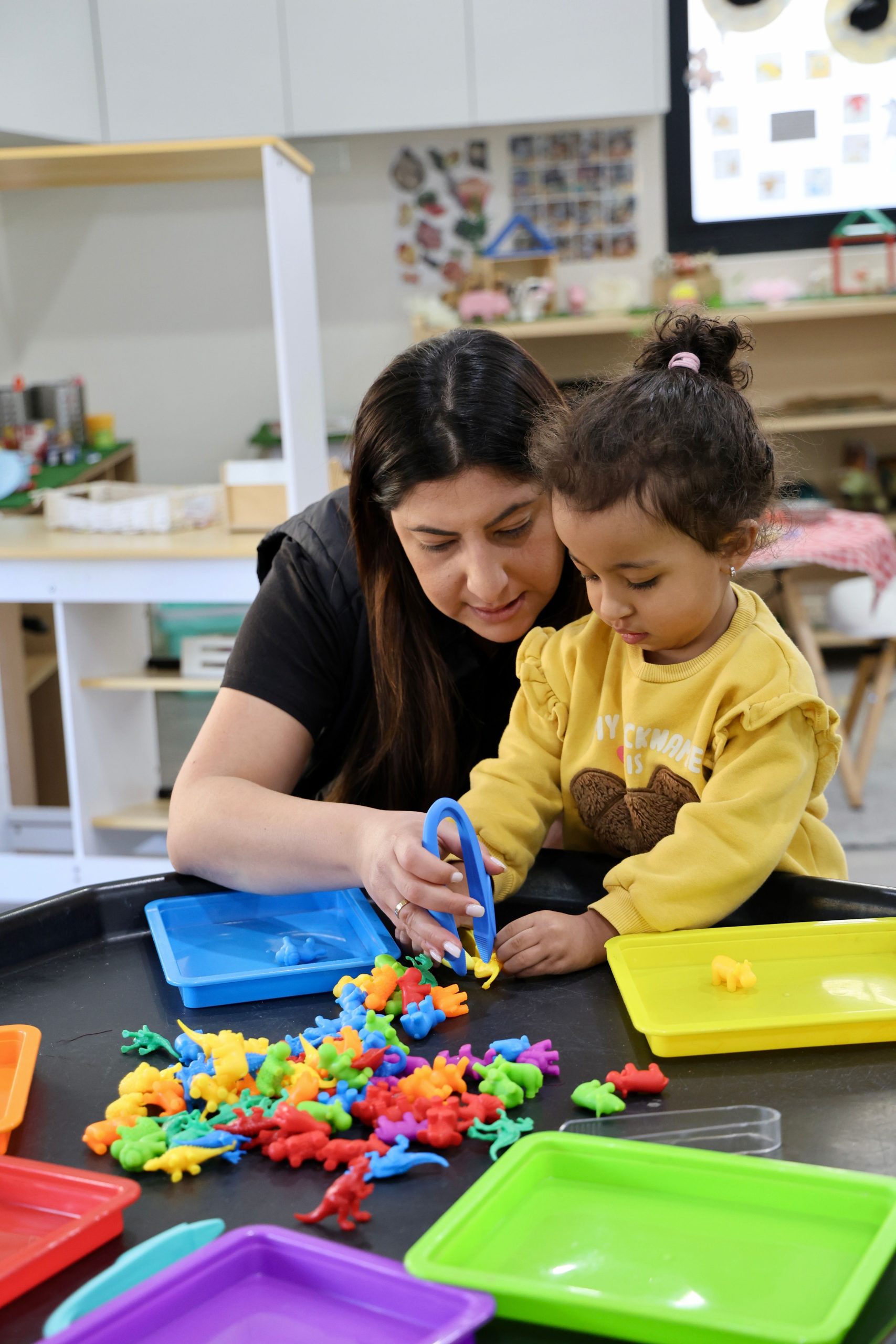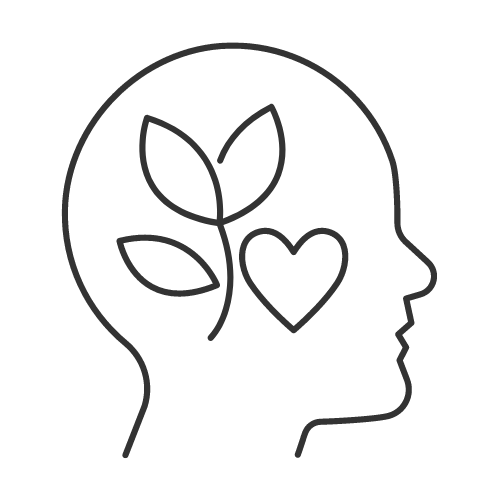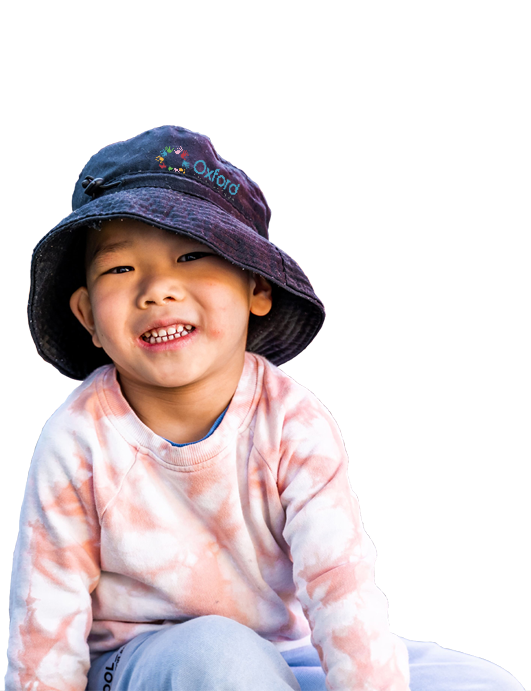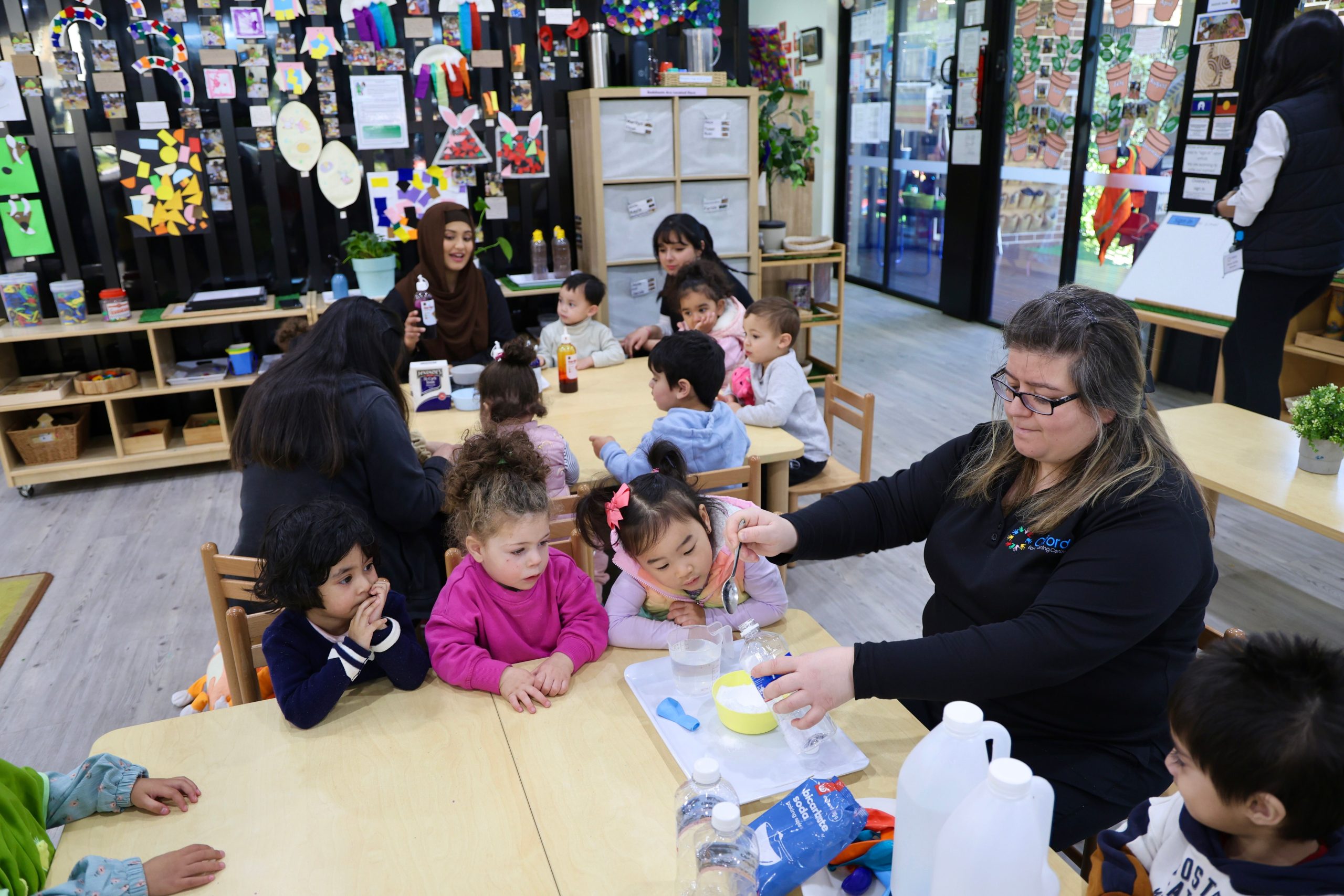Toddlers Thrive: Playful Learning Journey

The Toddler program for children aged two to three is designed with a focus on meaningful learning experiences that involve exploration and hands on play.
Educators listen to and observe the children using their interests to support them with meaningful projects and activities.
Through play based learning experiences, interest based projects, embedding children’s voices and aboriginal perspectives and creative arts toddlers are empowered to make meaning of the world around them, and develop a positive attitude to learning.
Key Learning Areas

Identity
Oxford nurtures children's sense of identity by encouraging their interests, fostering independence, supporting resilience, building connections, encouraging exploration, and enhancing self-esteem and belonging.

Connection
Children learn about their connection and contribution by exploring diversity, culture, sustainability, community, and the principles of fairness, taking turns, group projects, and shared play.

Wellbeing
We cultivate positive attitudes towards health, wellbeing, and nutrition through daily movement, healthy habits, mindfulness exercises, bodily awareness, emotional learning, and the Munch and Move Program.

Learning
We provide engaging learning experiences through play, interest projects, and intentional teaching that foster problem-solving, fine and gross motor skills, resilience, creativity, concentration, and foundational academic skills.

Communication
We support the development of communication and pro-social skills through early literacy activities, storytelling, group activities, music and movement, child-directed learning, asking questions, group time, show and tell, and self-expression.

Aboriginal
Educators embed aboriginal perspectives into the curriculum by providing resources for play. We also build on children’s cultural capital through wall displays, cultural toys, and diverse storybooks.

Sustainability
We provide meaningful hand on learning experiences in order for children to become environmentally responsible. This supports their learning about sustainability and enables them to appreciate and respect their natural environment.
Materials and Activities Include:
Identity
- Home corner activities
- Role play
- Self Discovery
- Name recognition
Connection
- Reading books about different cultures
- Trying new recipes from other countries
- Participating in linguistic and cultural events such as Diwali, Easter, Harmony Day, NAIDOC, Eid, and Christmas.
Wellbeing
- Fun games about the 12 fundamental movement skills
- Obstacle courses
- Understanding Emotions
- Learning about healthy eating
- Cooking experiences
- Yoga
Learning
- Engaging in interest based project topics
- Alphabet recognition, sounds and games
- Number 1-20 recognition and games
- Easy Puzzles
- Threading and Weaving
- Building blocks
- Balancing and stacking objects
- Gears and cogs
- Drawing and Painting
Communication
- Reading books
- Free drawing and painting
- Embedding children’s voices to activities
- Show and Tell
Aboriginal
- Reading aboriginal dreamtime stories
- Listening to aboriginal music
- Using aboriginal instruments
- Acknowledgement of country
Sustainability & Environment
- Caring for the garden
- Using recycled materials for loose parts play
- Planting
- Worm Farm
- Learning about animals and their habitat
- Learning about different fruit and vegetables
Early Years Learning Framework
The Reggio Emilia curriculum and the Australian Government’s Early Years Learning Curriculum: Belonging, Being & Becoming work together to nurture children’s potential. The EYLF incorporates five outcomes:
- Children have a strong sense of identity
- Children are connected with and contribute to their world
- Children have a strong sense of wellbeing
- Children are confident and involved learners
- Children are effective communicators


